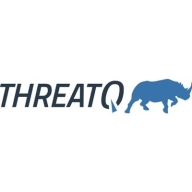

ThreatQ and AWS Security Hub both operate in the cybersecurity market, with distinct focuses. AWS Security Hub appears to have the upper hand due to its comprehensive feature set, despite a higher cost.
Features: ThreatQ enhances threat intelligence with customizable workflows, integration capabilities, and robust intelligence collection to improve situational awareness. AWS Security Hub offers a unified view of security alerts by integrating seamlessly with AWS services, ensuring automated compliance checks and broader security management.
Ease of Deployment and Customer Service: ThreatQ ensures easy deployment and offers strong customer support, facilitating integration into existing infrastructures. AWS Security Hub simplifies the deployment process within AWS-centric environments thanks to its inherent compatibility but may require more effort to integrate into non-AWS setups.
Pricing and ROI: ThreatQ is considered cost-effective upfront, with predictable pricing and a significant return on investment through improved threat management. AWS Security Hub, although potentially higher in initial costs, is seen as a worthwhile investment due to its feature-rich offering that provides strategic value over time.
| Product | Market Share (%) |
|---|---|
| AWS Security Hub | 8.1% |
| ThreatQ | 1.2% |
| Other | 90.7% |

| Company Size | Count |
|---|---|
| Small Business | 10 |
| Midsize Enterprise | 5 |
| Large Enterprise | 12 |
AWS Security Hub is a comprehensive security service that provides a centralized view of security alerts and compliance status across an AWS environment. It collects data from various AWS services, partner solutions, and AWS Marketplace products to provide a holistic view of security posture. With Security Hub, users can quickly identify and prioritize security issues, automate compliance checks, and streamline remediation efforts.
The service offers a range of features including continuous monitoring, threat intelligence integration, and customizable dashboards. It also provides automated insights and recommendations to help users improve their security posture. Security Hub integrates with other AWS services like Amazon GuardDuty, AWS Config, and AWS Macie to provide a unified security experience. Additionally, it supports integration with third-party security tools through its API, allowing users to leverage their existing security investments.
With its user-friendly interface and powerful capabilities, AWS Security Hub is a valuable tool for organizations looking to enhance their security and compliance posture in the cloud.
ThreatQ is a cybersecurity platform designed to enhance threat intelligence operations. It centralizes and manages threat data, allowing organizations to identify and respond to threats more efficiently.
ThreatQ is designed to empower security teams by personalizing threat intelligence and automation processes. It integrates with existing technologies, streamlining data collection and distribution. This promotes efficient detection, investigation, and response to security incidents, improving overall cybersecurity posture and resilience.
What are the key features of ThreatQ?ThreatQ is versatile in industries like finance and healthcare, where cybersecurity is crucial. It facilitates swift threat identification and risk management, essential for protecting sensitive data and complying with industry regulations. Its adaptability allows it to fit into diverse security architectures, making it a valuable asset across sectors.
We monitor all Security Orchestration Automation and Response (SOAR) reviews to prevent fraudulent reviews and keep review quality high. We do not post reviews by company employees or direct competitors. We validate each review for authenticity via cross-reference with LinkedIn, and personal follow-up with the reviewer when necessary.